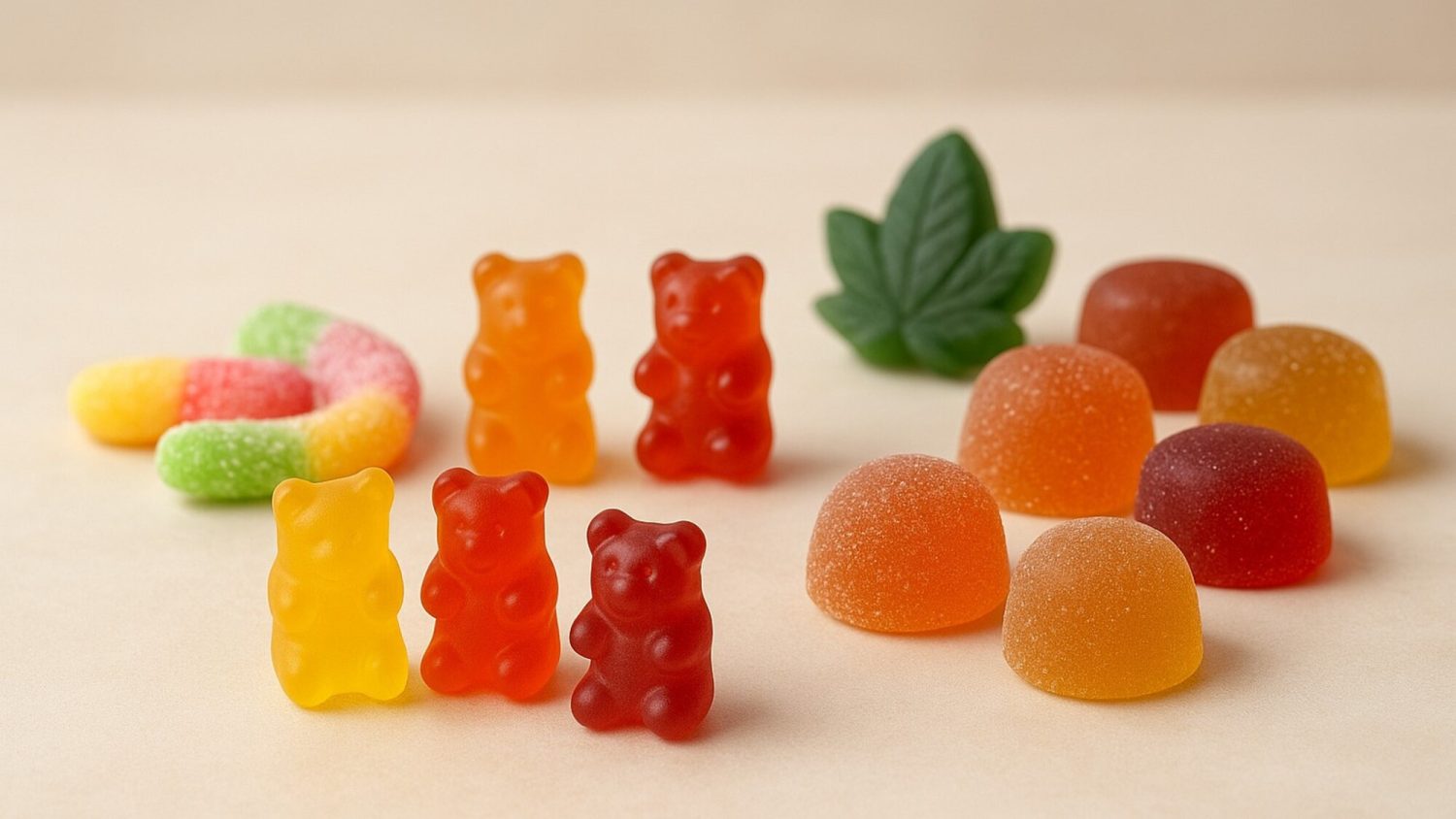
Ever found an old bag of gummy vitamins sitting in the pantry months after you bought them? The big question pops up immediately: are they still okay to eat?
Unlike perishable dairy or baked goods, gummies seem like they could last forever. That’s why many candy lovers have asked, “Do gummies expire?” The truth is they do. The good news? If produced with quality equipment and stored properly, these chewy little sweets can be safe and enjoyable for longer.
In this post, we’ll explore how long gummies last, what makes them go bad faster, and how to tell if they’re expired. We’ll also share some insider tips to help you keep your gummies fresh and tasty for as long as possible.
Do Gummies Go Bad?
Short answer: Yes. But they don’t spoil overnight. Commercially manufactured gummy bears often have high sugar and low water content. This recipe acts as a natural preservative, so most bacteria won’t grow in these gummies.
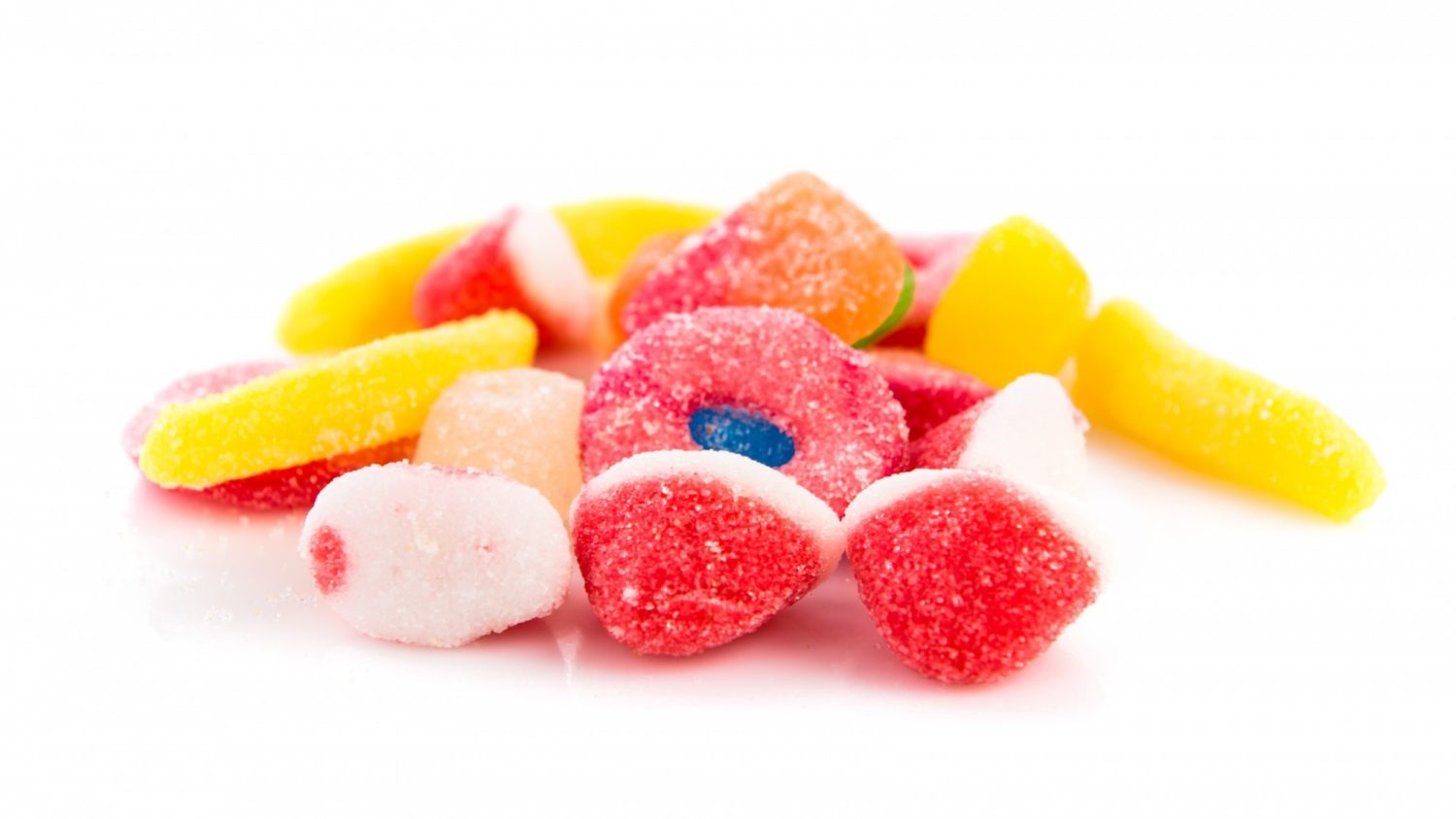
Gummy bears can become hard, stale, or flavorless over time. But if kept in proper conditions, like unopened, these signs of “going bad” are not dangerous. Only when contaminated by moisture can they truly become spoiled.
So, do gummy bears expire? You may have noticed a “best by” date on their packages. The date actually indicates peak quality. As long as your gummies show no mold or nasty smell, you can generally eat them without harm. Just be aware that the texture and taste might not be as enjoyable as when they were fresh.
How Long Do Gummy Bears Last?
Gummy bears are famous for their long shelf life. Exactly how long they last depends on whether the package is opened or not and how they’re stored.
What Is the Shelf Life of Gummies?
Unopened gummy bears, whether commercial or homemade, can last much longer. For instance, a well-stored, unopened bag of commercial gummy candy can easily last up to a year without much change. And it’s not unusual for unopened gummies to still taste fine for months past their “best by” date.
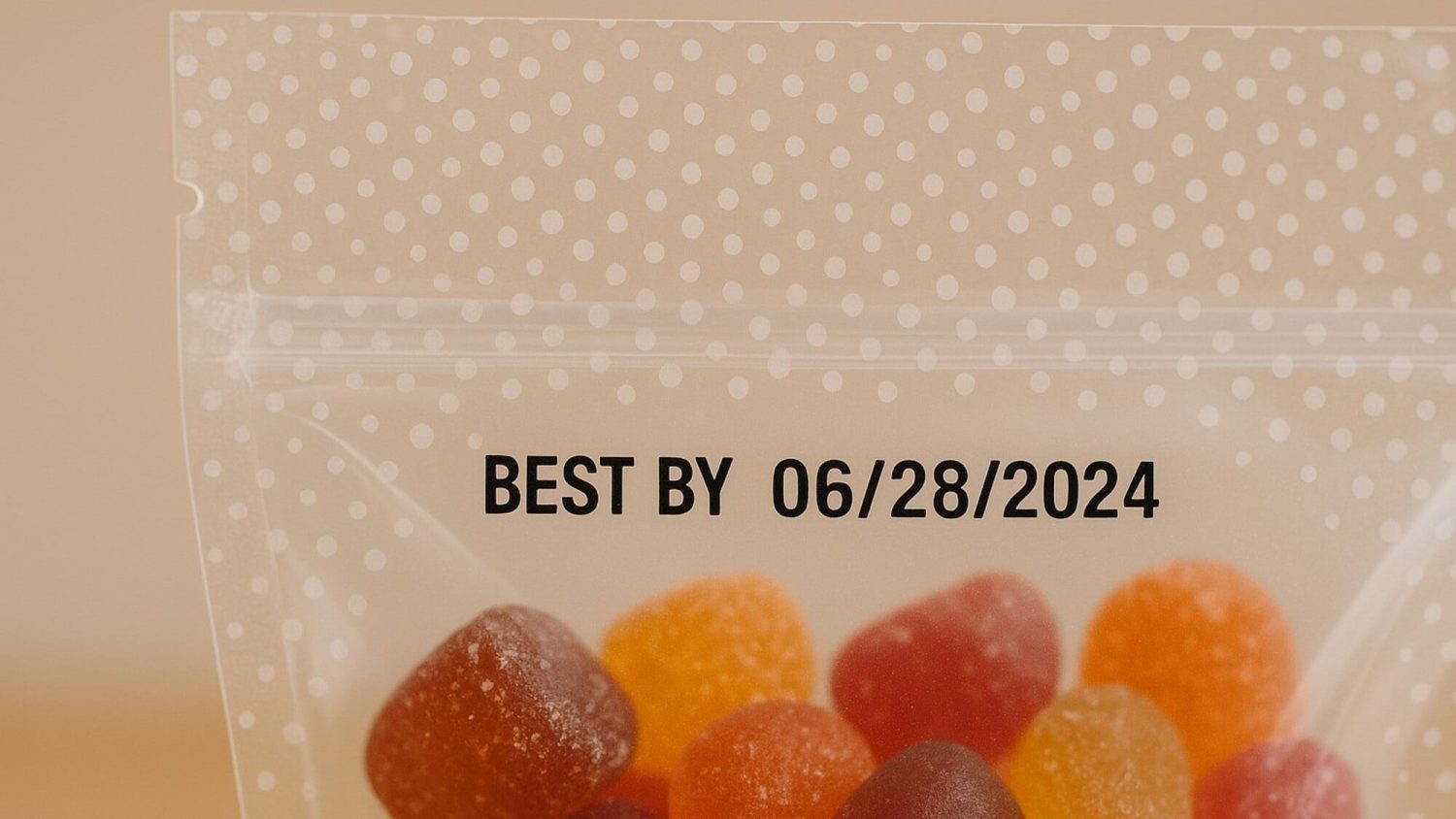
But once opened, even if you resealed them, their shelf life can be greatly compromised. On average, opened gummies stay at their best quality for about 3 to 6 months if you keep them sealed. Some sources even suggest 2-4 months for peak flavor and softness.
If you make gummies at home, their shelf life is much shorter. Without the same formulation and packaging, homemade gummies might only last 1-2 weeks at room temperature. You can refrigerate them to extend their life to maybe a month, but generally these should be enjoyed quickly while fresh.
Below is an overview of how long different gummies last unopened and once opened.
| Type of Gummies | Unopened Shelf Life | After Opening |
| Gummy candies | 6-12 months | 3-6 months |
| Gummy vitamins/supplements | 1-2 years | 6-12 months |
| CBD/infused gummies | 6-12 months | 3-6 months |
| Homemade gummies | 3-7 days (room temp) | Up to 2 weeks (fridge) |
Factors that Affect the Shelf Life of Gummy Bears
When your gummies are opened or unopened, there are several factors that can influence how quickly they might go “bad:”
1. Storage Temperature
Heat is the enemy of gummy texture. High temps can make gummies melt into a sticky blob. Even when unopened, they can lose quality if left in a hot car or direct sunlight.
2. Humidity and Moisture
Gummies prefer dry conditions. In a humid environment, gummies absorb moisture and become sticky. In the worst cases, mold grows. If your gummy bears are damp, they’re truly “bad.”
3. Exposure to Air
Ever wonder why gummies turn hard? When exposed to air, they dry out and become tough over time.
4. Ingredients & Preservatives
Traditional gummies are loaded with sugar and often a bit of citric acid. Sugar fights off microbes, and acids help keep mold at bay. So, sugar-free or “all-natural” gummies tend to expire faster. For example, gummies made without sugar might only last 6 months unopened. Likewise, gummy vitamins can lose potency over time.
5. Packaging Quality
Factory-sealed packages are pretty good at keeping gummies fresh. If that seal is broken or the bag is punctured, freshness will be compromised faster. Nitrogen flushing and vacuum sealing are sometimes applied in commercial products. These techniques can greatly extend shelf life.
6. Odors and Cross-Contamination
Edible gummies can absorb strong odors if stored next to smelly foods like onions. Though this doesn’t exactly spoil them, it can make them taste funky. Also, if you stick wet hands in the bag or leave it in a dusty place, gummies can be affected by mold spores or contaminants.
7. Production Methods
Gummy bear shelf life can be affected even before they’re formed. The first five factors you read about can also impact gummies during production. Good gummy manufacturers control these conditions on their production lines. They use reliable gummy making equipment and techniques to avoid early spoilage.
How to Properly Store Your Gummy Bears
Now that we know what affects gummy shelf life, let’s talk about some simple storage tips you can use.
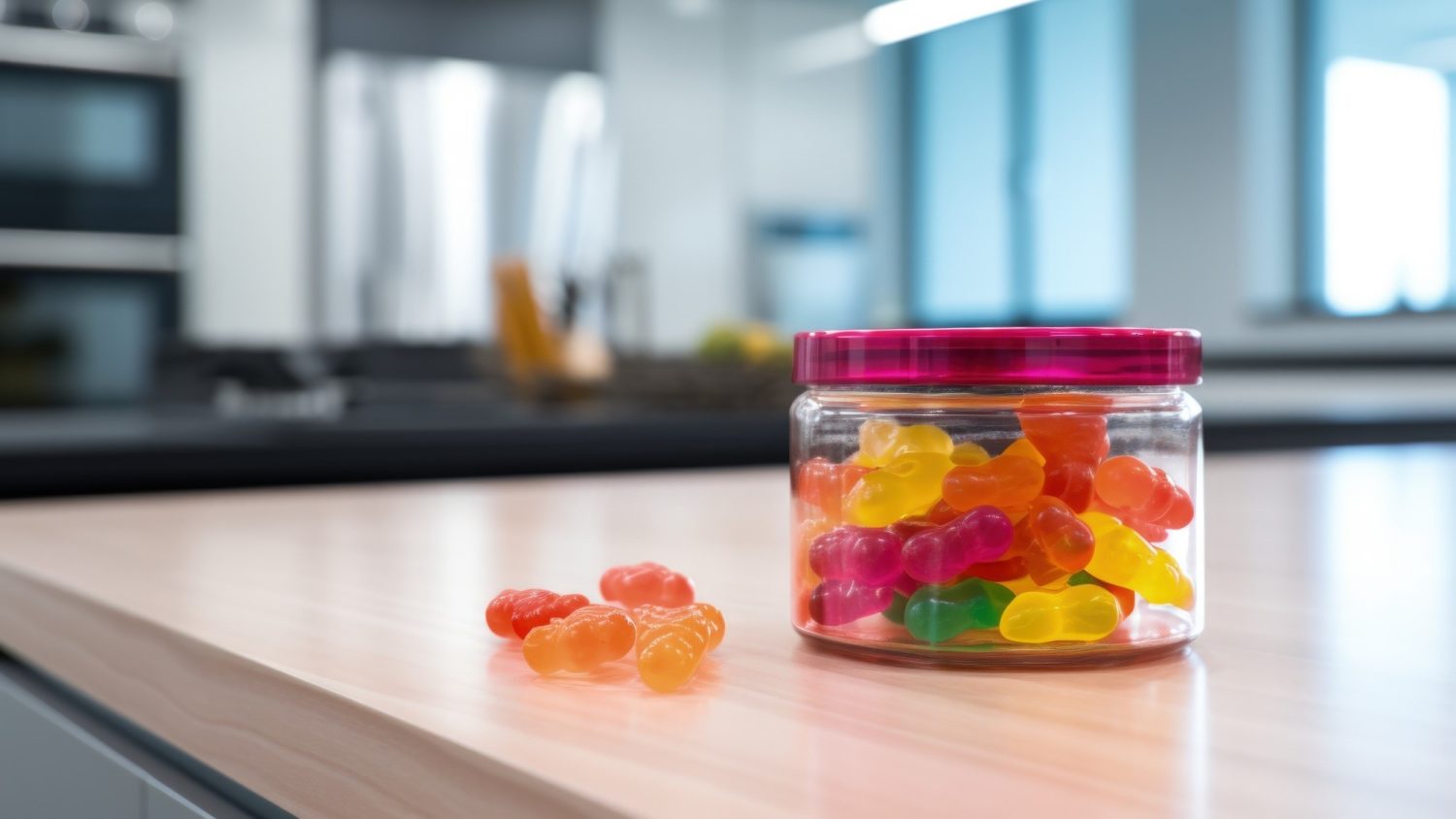
Keep gummies cool and dry.
Store your gummy candies in a cool place, around 15-21°C. A pantry or cupboard is usually perfect. Keep them away from heat sources and direct sunlight.
Use airtight containers.
Once the gummy package is opened, seal it tightly with a clip after each bite. You can also transfer gummies to an airtight jar or a Ziploc bag. This prevents them from drying out or getting damp. If the original bag has a zip closure, use it!
Avoid refrigeration unless necessary.
For commercial gummies, refrigeration is generally not needed. Why? In the fridge, gummies can harden a bit. When you take them out, water droplets can form, making them sticky. But homemade gummies and those without preservatives are an exception. They spoil faster due to their perishable ingredients, so refrigeration is recommended. And if you live in a hot area, storing gummies in the fridge also helps. Just be sure they’re already in a truly airtight container.
Use silica gel packs for long storage.
If you plan to store gummies for many months, you can toss a food-grade desiccant packet into your gummy container. These little packs can absorb moisture, especially when you’re in humid climates.
How to Tell if Gummies Are Bad
Wondering how to judge if your gummy bears are spoiled? Here are some signs that your gummies should be tossed:
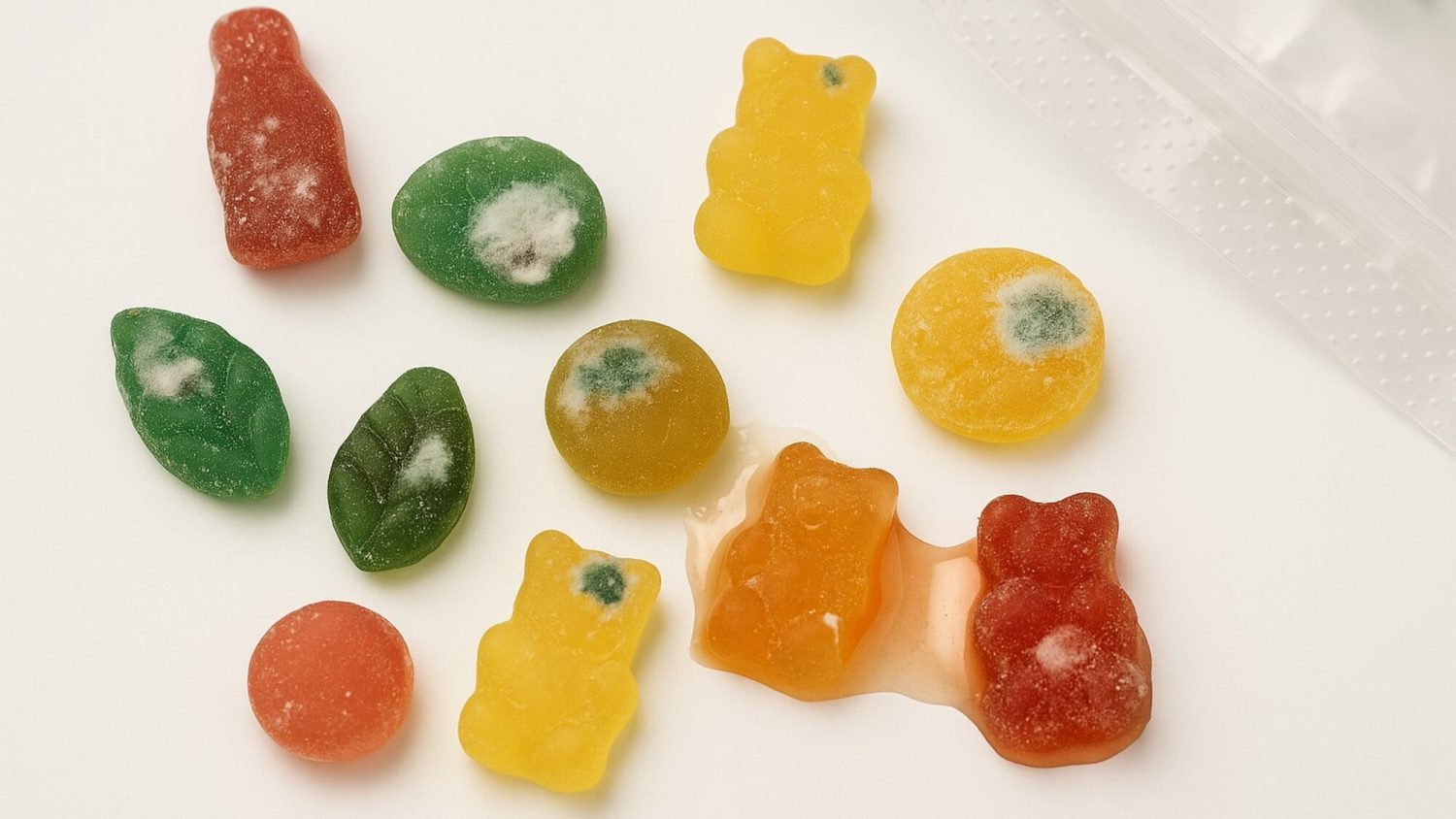
Texture changes
Fresh gummies are soft and chewy. If yours become harder than usual, that’s a sign they’ve dried out. Or conversely, the gummies are melted, very sticky, or turn into a gooey blob. It’s best to discard them.
Appearance changes
These signs are easier to spot. If you see pale patches or unusual colors on the surface, the gummy may be going bad. Sometimes, the white powdery spots are crystallized sugar. It’s not toxic, but it’s not going to taste right. And those fuzzy white or green spots mean mold. No part of a moldy gummy bear is safe to eat.
Weird smells
If a fruity gummy looks okay but emits a sour, fermented, or off-putting odor, that’s a bad sign. A rancid smell could mean some of the flavors have spoiled. Trust your nose. Don’t eat it!
Strange taste
If you take a bite, and the gummy is flavorless or tastes bitter, they’ve definitely gone bad. Spit it out and discard the rest.
What Happens If You Eat Expired Gummies?
For the most part, eating “expired” gummy bears is not dangerous. Experts generally agree that they’re still safe to eat, just not as tasty or chewy as when fresh. And for gummy vitamins and infused gummies, the bigger concern is loss of potency.
If the gummies have visible mold or a really off taste, consuming them could upset your stomach or expose you to mold toxins. But these are rare cases.
So, if you accidentally consume a pack that’s a year past its best-by date, don’t panic. Check for the warning signs we listed above. If they look and smell fine, trying a few won’t hurt you. But if you’re unsure, it’s perfectly okay to discard them.
FAQs
1. Do gummies expire if they’re unopened?
Yes, but sealed gummies last much longer. Unopened gummy candies can stay good for up to a year. Vitamin or supplement gummies can last -12 years depending on formulation.
2. How long do gummies last after opening?
Once opened, most gummies last about half a year if sealed properly and stored in a cool, dry place.
3. Should I refrigerate or freeze gummies to make them last longer?
For homemade gummies, refrigeration helps. But for store-bought candies, it’s unnecessary to refrigerate them because condensation can cause them to become sticky. Freezing can keep gummies good for months, but it will change their texture.
4. Why do gummy vitamins or CBD gummies expire sooner?
Gummy candies are made from stable ingredients. The active components in these gummies are vitamins, oils, or cannabinoids that degrade over time. And if they’re exposed to heat, air, or not sealed properly, they may go bad even faster.
5. What should I do with old or expired gummies?
Mix the gummies with other waste, seal everything in a bag, and throw it away.